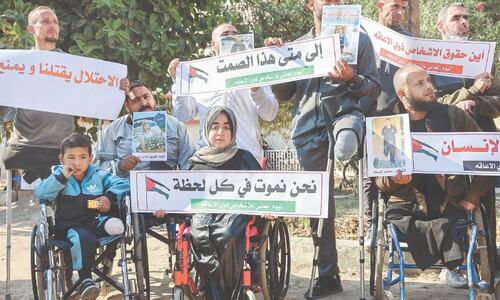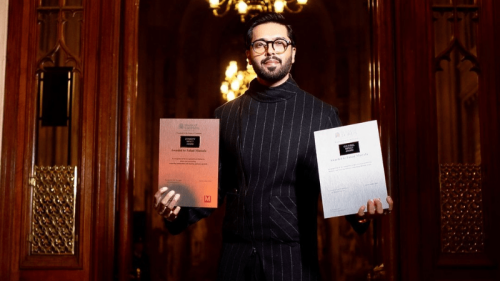KUWAIT CITY: Kuwait has moved to ward off sectarian tensions following a deadly bombing at a Shia mosque and has taken measures to try to prevent another attack by the self-styled Islamic State group.
Shias, who make up about a third of the oil-rich Gulf state's 1.3 million citizens, have complained in the past of discrimination in the Sunni-ruled emirate.
But after the June 26 suicide mosque bombing, which killed 26 people, Sunni and Shia religious and political figures presented a united front.
The emir, Sheikh Sabah al-Ahmad al-Sabah, visited the Al-Imam Al-Sadeq mosque in Kuwait City only minutes after the attack by IS, a Sunni jihadist group that sees Shias as heretics.
He also ordered that the victims be considered martyrs for the nation, in a response that was well-received by Shias.
“They (the jihadists) wanted to stir a conflict between the two sects but found there is only one religion, and a united people,” parliament speaker Marzouk al-Ghanem said at a reception for relatives of the victims. Shia leaders agreed.
“The Kuwaiti people gave yet another example of national unity. We became united as we were during the Iraqi invasion in 1990," the senior cleric at the targeted mosque, Sheikh Abdullah al-Mazeedi, said at the same reception.
Shia MP Yousef al-Zalzalah said in parliament “The Kuwaiti people have sent a clear message to terrorists that you will never divide this society."
Kuwait's largest Sunni mosque held three days of mourning and accepted condolences in a show of solidarity, while senior officials spoke out against Sunni-Shia divisions. In yet another sign of unity, thousands of Shias and Sunnis prayed together at the Grand Mosque on Friday. The emir, crown prince, ministers and MPs attended the prayers.
 |
| Emir of Kuwait Sheikh Sabah al-Ahmad al-Jaber al-Sabah (R) arrives to perform Friday prayers as Sunni and Shia worshipers gathered together to pray in an act of solidarity at Kuwait's Sunni Grand Mosque. - AFP |
The interior ministry deployed unprecedented security measures around Shias mosques, where security personnel and volunteers searched worshippers.
Kuwaiti political analyst Chafer al-Ami said that, if anything, the bombing had brought Kuwaitis closer together. “I believe this huge bombing will greatly contribute to boosting national unity,” he said.
“Kuwait's society is more immune (to sectarian divisions) than other Gulf societies because of democracy and the high standard of freedoms." Unlike most of its Gulf neighbours, Kuwait has a strong parliamentary tradition, although the emir retains ultimate authority and the country has faced calls for reform.
During a parliamentary debate this week, some Shias MPs said the government needed to do more to end discrimination and combat extremism.
“We must win this war against terror and to do so we must end discrimination and instigation against Shias," said MP Khalil Abul.
Shiite political analyst Abdul Wahed Khalfan said strong measures were needed. “Kuwaiti Shias are frustrated because the government has not done enough to curb sectarian instigation and practices against them,” Khalfan said.
“There are people in Kuwait who fund terrorism and who are fighting alongside the Islamic State. What is needed is that the government should not be lenient with extremists any more and must take effective security measures,” Khalfan added.
Security tightened
Kuwaiti authorities moved quickly after the attack, arresting several people linked to the Saudi who allegedly carried out the bombing for IS.
 |
| Kuwaiti Sunni and Shia men are searched by security members outside the Sunni Grand Mosque as they arrive to perform Friday prayers together in an act of solidarity at Kuwait's Grand Mosque. - AFP |
Five have been referred to prosecutors to face trial in a special court.
Declaring itself in a state of war against terrorism, Kuwait placed police and security agencies on high alert, upgraded its security plan and beefed up measures around oil facilities and other vital installations.
In a bid to prevent further attacks, parliament adopted a law Wednesday requiring mandatory DNA testing on all the country's citizens and foreign residents to help security agencies make quicker arrests in criminal cases.
Lawmakers also approved $400 million in emergency funding for the interior ministry, though some warned the new measures may still not be enough.
Despite this, many Kuwaitis remain concerned about more attacks. “What are the guarantees that new bombings will not take place," independent MP Jamal al-Omar asked in parliament.
“We need a crisis management agency and the government should set up a war council,” Omar said.
“We can't really say that this was the last terror attack in Kuwait," liberal MP Rakan al-Nasef warned.














































